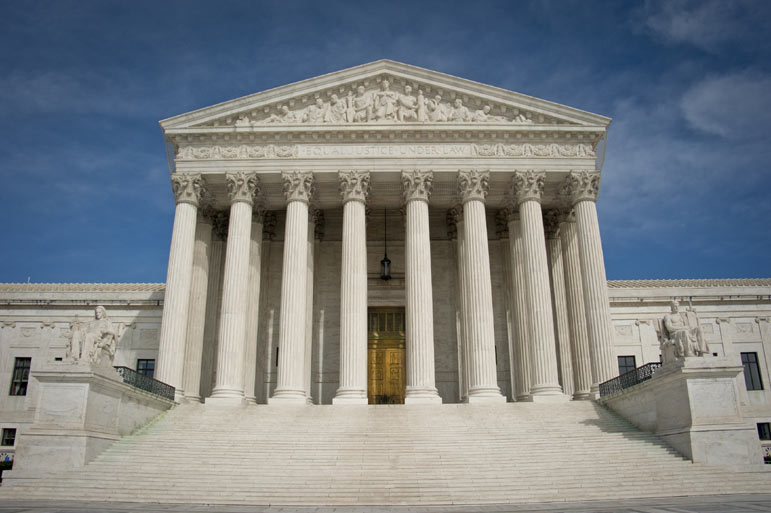
Tech companies and app developers everywhere are breathing a sigh of relief after Monday's major Supreme Court ruling on a topic that's close to their hearts: Patents. More specifically, patent lawsuits - a rising number of which analysts say are bogus and threaten to strangle new startups and inventions before they have a chance to succeed.
The ruling could wind up having a significant effect on which companies and innovations thrive, and which get sued into oblivion. Here's what you need to know.
• What's the name of the case? The case is called TC Heartland v. Kraft Foods. Kraft had sued Heartland over a type of product that's called a "liquid water enhancer," which is essentially a package of flavoring that you can dump into a bottle of water to change its color and taste. Kraft said that Heartland had basically stolen its idea. But while the case may have begun as a straightforward patent infringement suit, it eventually took on national significance as it called into question where cases like these could be tried.
• What do you mean, where?
I mean it literally - as in where, geographically, the case can be heard by a court. Until the Supreme Court's ruling this week, patent lawsuits could be heard all across the country, giving companies the opportunity to seek out courts where the odds were tilted in their favor.
This led to a kind of clustering, where a small handful of federal courts became responsible for deciding a huge number of patent cases. One major example is the Eastern District of Texas, which is notorious both for hearing a lot of patent infringement cases and also for handing accusers big wins. A 2015 study by PricewaterhouseCoopers found that the court was far more likely to decide in a patent plaintiff's favor than other courts.
• So what does the Supreme Court's ruling mean for this system?
It's a big deal, particularly for smaller companies. The Court voted unanimously to say that patent lawsuits should be tried where the defending company is based, rather than in a court of the plaintiff's choosing.
Legal analysts say this decision could shift a huge number of cases away from "plaintiff-friendly" districts and toward more "neutral" venues where a defending company stands a better chance of fending off a suit.
"From here out," according to Walter Olson, a senior fellow at the libertarian Cato Institute, "defendants can still be sued in a district such as E.D. Tex. if they have a regular and established place of business in it, but the decision is likely to shrink what I called in my January preview a 'jackpot patent litigation sector.'"
• How does this ruling benefit tech companies?
Tech companies worry a lot about being sued by firms that simply hold a lot of patents but don't use them to manufacture any goods. These are called "non-practicing entities," or "patent trolls," because their main source of revenue comes from suing companies and hoping they settle rather than duking it out in court. If a patent troll can make the litigation so painful for a tech company that it would rather pay to get rid of the suit, then the troll has won. Of course, if the troll has picked a friendly court and the court hands the troll a victory, then it's also won.
But the troll loses if the company it's targeting calls its bluff - if it takes the non-practicing entity to the mat and wins. This becomes more likely, analysts say, if patent cases can be heard in venues other than the ones that trolls currently prefer.
"The Supreme Court's unanimous decision is a significant victory for the software developers who drive the $143 billion app ecosystem, as well as patent holders across the country," said Morgan Reed, president of ACT | The App Association.
If tech companies can spend less of their time and money on frivolous lawsuits, the thinking goes, they can reinvest those resources into developing new technologies.
Previously:
• How to protect yourself from the global ransomware attack
• The future of Internet business might rest on this obscure court case
• Your guide to choosing an unlimited data plan
• A federal court may have just added to Clinton's email woes
• The Internet may never be the same, thanks to this landmark court ruling
• His Internet was too slow. What he did when the cable company wouldn't rectify the situation
• The real reason America controls its nukes with ancient floppy disks
• What happens when a top privacy and security regulator falls for an email scam?
• The infuriating rule American Airlines won't tell you about until it's too late



 Contact The Editor
Contact The Editor
 Articles By This Author
Articles By This Author